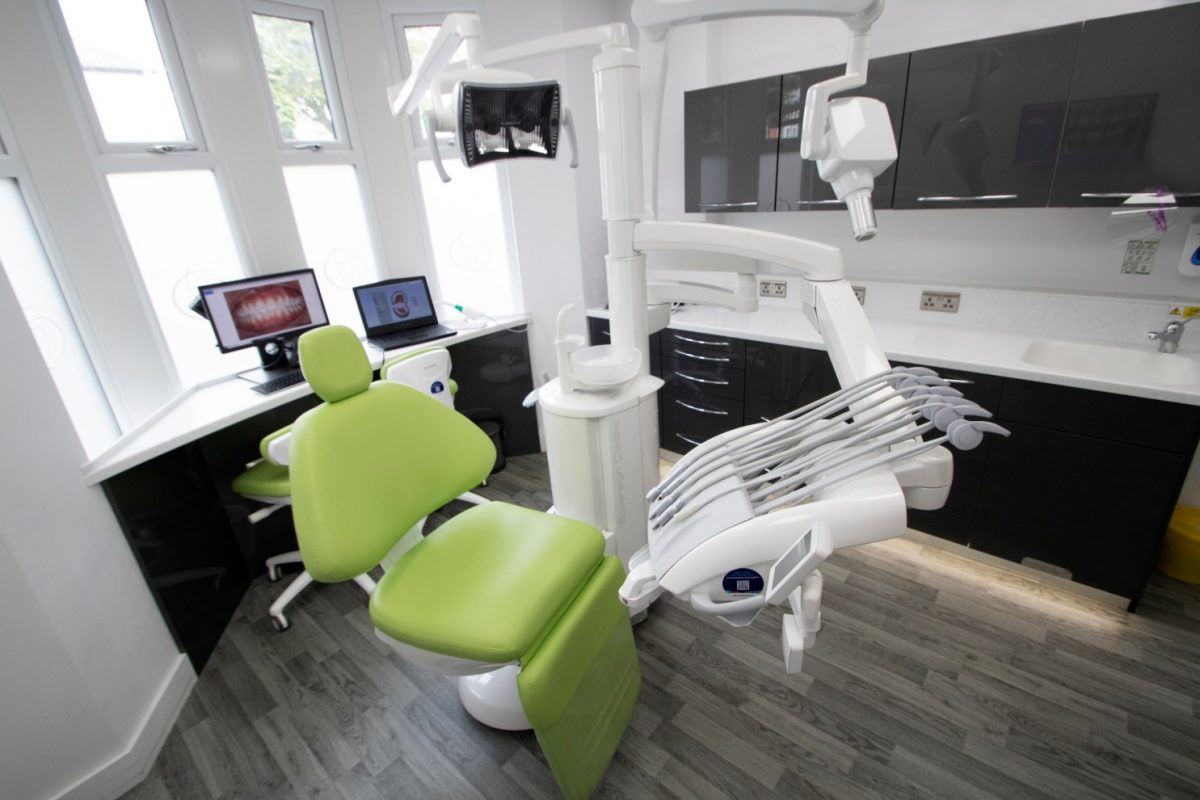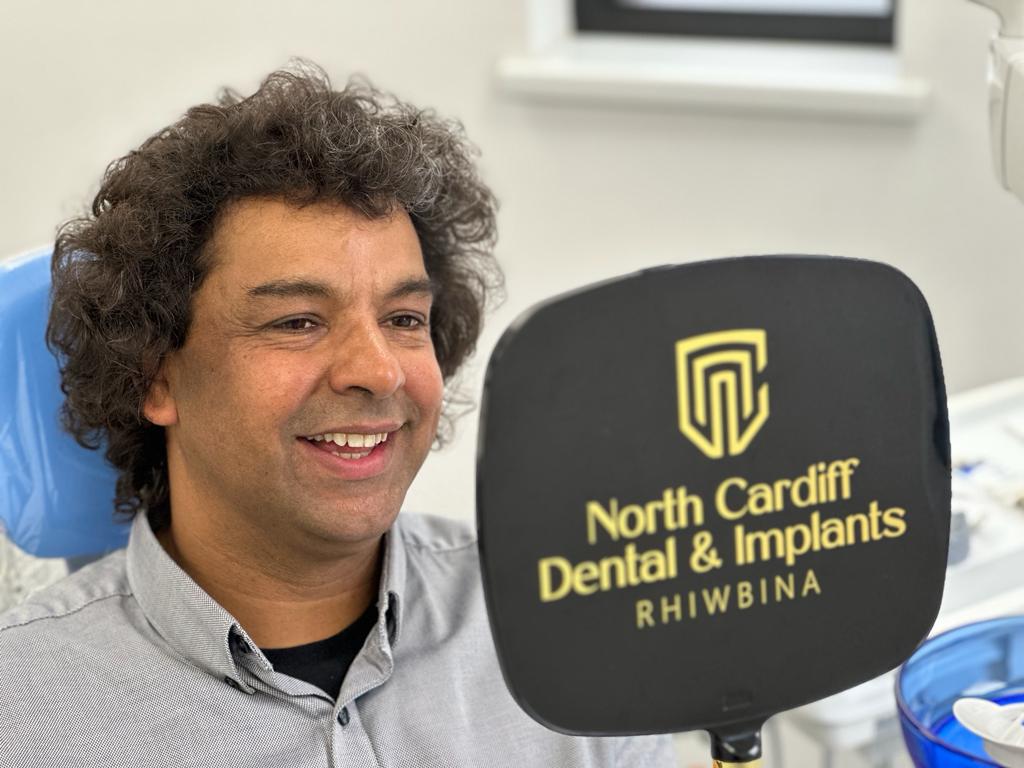Dental Implant Treatments

Dental Implants
Scroll through the images to view the full case.


World leading implants

Highly experienced clinicians

Life changing results

State of the art equipment and facilities

Exceptional aftercare and service as standard

Transparent pricing
FAQs
Dental implants are inserted into the jaw bone under local anaesthetic so the procedure is not painful.
Just like with any other dental procedure, local anaesthetic takes away any painful sensation for a number of hours so that you can comfortably undergo the procedure without the risks that are carried by the use of general anaesthetics (where you are not conscious).
Following the procedure, it is normal to experience some discomfort for 2-3 days after which symptoms should begin to resolve. In this time, you should carefully follow postoperative instructions to ensure quick and uneventful healing.
Over-the-counter painkillers (analgesics) are often recommended and are sufficient to get you through this period comfortably. After a few days, and from thereon in, you will feel no sensation from your implant.
It is possible to use dental implants (the screw that remains inside the jaw bone) to support many types of restorations in the mouth.
An implant could support a single crown or a small number of teeth (called a bridge). Multiple implants could work together to support many teeth that are joined together. These are restorations that remain fixed inside the mouth and are cleaned like your natural teeth.
Dental implants can also be used to support removable teeth (known as dentures) which must be taken in and out and cleaned at home daily. A removable denture attached to implants provides function that is far superior to a conventional denture.
Because the type, size and materials used for the restorations listed above can vary, the price that is quoted for the implant often does not include a crown unless specified.
Dental implants can last forever but this is not always the case. It is best to make your decision on the assumption that you will need some form of maintenance of your implant and restoration in your lifetime – the younger you are, the more likely this will be.
Complications related to dental implants can be categorised as short and long term, and biological or mechanical.
In the short run, it takes a few months for your body to grow bone onto the implant surface – a process known as osseointegration. The success rate is excellent, in excess of 95% if certain protocols are followed.
In the long run, biological problems can cause the development of gum disease around your implant. This is more likely to happen if you smoke, have gum disease (periodontitis), do not clean your implants thoroughly and regularly (with toothbrushes and interdental brushes), do not visit your dentist and hygienist regularly or have certain medical conditions (for example diabetes).
Mechanical complications can lead to chipping, staining and wear of your restoration. Over time, as with anything manmade, more extensive maintenance may be needed, such as replacing the crown/bridge/denture. Dentures are often cheaper than ceramic restorations such as crowns and bridge, but the softer materials will need replacing more frequently.
If the implant under the gum is healthy, then replacing the restoration on top is normally straightforward but can be costly and should be factored into your decision.
No! Health is the determining factor. Chronological age has no bearing on your right to improve your quality of life, or on the success rate of implants.
Although the success rate of dental implants is very high, in some instances an implant will fail to integrate. We cannot promise that this will not happen but we will do our best to look after you if it does. Your risk depends on your particular circumstances so we will discuss this and how we could help you in the unfortunate event of a failure once we have completed your implant assessment.
Following the placement of dental implants, it is normal to experience some discomfort, swelling and bruising. This often tends to begin to subside 2-3 days after surgery. Over the counter painkillers will provide sufficient pain relief.
A dental implant cannot be felt as it sits inside the jaw bone, under the gum. The restoration will feel similar to your natural teeth. It may feel different when first attached to your implant but you will quickly become used to the shape, size and texture of your prosthesis.
Yes. As with any minor surgical procedure, it carries risks that your dentist will be able to explain to you. These risks are dependent on your own circumstances, the site of the implant and your individual anatomy.
The gold standard for diagnosis and planning is the use of Cone Beam Computed Tomography (CBCT) scans which are relatively low dose x-rays that provide your implant surgeon with an accurate 3D model of your jaw. This can be used to further minimise the risk of complications associated with implant placement.
Depending on the number of implants being placed, the complexity of the procedure and whether you are having teeth removed on the same day, the time you spend in the dental chair can range from 45 minutes to a few hours. Your implant dentist should be able to give you a better idea.
There are two parts to making an implant retained prosthesis look natural. The camouflage is dependent on the pink aesthetics (gum) and the white aesthetics (teeth).
The pink aesthetics are the most difficult part and will depend on:
the healed shape and texture of your gums following tooth loss
the surgical techniques used by your dentist and your subsequent healing
The appearance of your teeth (white aesthetics) will be down to the quality of the dental laboratory and skill of the dental technician creating the teeth. Sometimes it is not possible (or very difficult) to restore the natural appearance of the area where you lost the tooth or teeth. Your dentist will be able to warn you about this and suggest ways in which the outcome could be improved when they are planning your treatment. If you show a lot of gum when you smile then it is more difficult to hide these areas. This may be a consideration in your choice of treatment and again, your implant dentist will be able to talk you through this.
STILL HAVE A QUESTION?
Contact us at North Cardiff and Dental Implants on 029 2267 9999 to find out more about any of our treatments or book a consultation with one of our experienced clinicians.



